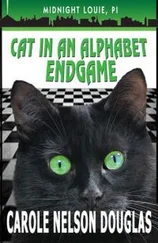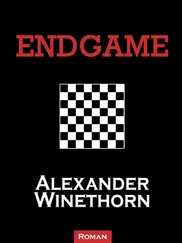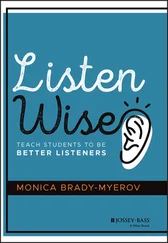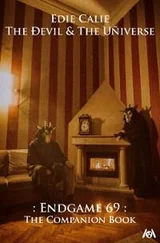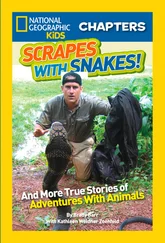In addition to Bobby, Kok also invited Spassky and his wife Marina to Brussels. For four days, the trio spent mostly all of their time at Kok’s suburban mansion, but it wasn’t all a discussion of the possible match. At one point, Fischer and Kok joined the Spasskys in a doubles tennis match; there were elegant, candlelit dinners and postprandial conversations, and a few outings into Brussels itself. Kok’s wife, Pierette Broodhaers, an attorney, said that she had a “normal and friendly” conversation with Bobby, not at all about chess. Nor, according to her, did he show any signs of the eccentricities the press kept referring to, with the exception of his speaking too loudly. “Maybe he is used to living alone so nobody listens to him,” she said, sensing his loneliness. He forbade her to take a photograph of him.
One evening, the men, who were joined by Jan Timman from Holland, the number three–ranked chess player in the world, went off to what Broodhaers described as a “raunchy” nightclub in downtown Brussels. Timman recalled meeting Fischer for the first time: “The most interesting thing was that I had once dreamed of meeting Fischer in a nightclub. Funny I had never entertained the hope of [actually] meeting him. When I broke through internationally, he had just stopped [playing].” Talking about who might be considered the greatest player of all time, he said, “As far as I am concerned, Fischer is the best ever.”
The amount being mentioned as the purse for the rematch was $2,500,000. Although Bobby was in want financially, this prize fund was not acceptable to him. Spassky wanted to go through with it, but no deal could be arranged. Little did either of them know, but Kok had already decided not to pursue the possible match. He found Fischer’s neo-Nazi remarks about Jews to be “beyond the abhorrent” and concluded that any large-scale match involving him would spell trouble. Spassky flew back to Paris, and Bobby boarded a train for Germany.
Since he was in Europe—his first time there in almost twenty years—Bobby felt he should stay awhile. Gerhardt Fischer, the man listed on Bobby’s birth certificate as his father, was living in Berlin, and at eighty-two he was not in good health. The press had learned that Gerhardt was somewhere in Germany—and that Bobby was in the country—and they were trying to track down the father so they could interview his famous son. Reporters believed that it was possible Bobby visited him, but there’s no proof he did.

In the late 1980s, during the Chess Bundesliga competition in Germany, Boris Spassky had met a young woman named Petra Stadler. He felt paternal toward her and thought Bobby might be interested in meeting her, so he gave her Fischer’s address in Los Angeles and suggested she write to him and send him her photograph. In 1988 she did just that, and to her surprise Fischer phoned her from California. Near the beginning of their conversation, he asked her if she was an Aryan. Recollecting the incident years later, she claims she replied: “I think so.”
Fischer invited her to visit him in Los Angeles, where she stayed in a hotel, and the two spent the next few weeks getting to know each other. Then Petra returned to her home in Seeheim, Germany. At that time, Fischer was impoverished, so it was impossible for him to fly to Germany with her. Now that he was in Europe in 1990, courtesy of Bessel Kok, Bobby visited Petra, and with the “pocket money” Kok had given him, his mother’s Social Security income, and some small royalty checks for his books, he lived for almost a year in Seeheim and in nearby towns, moving from hotel to hotel to avoid reporters, and spending time with Petra for as long as their relationship lasted.
Petra married Russian grandmaster Rustem Dautov in 1992, and in 1995 she wrote a book titled Bobby Fischer—Wie er wirklich ist—Ein Jahr mit dem Schachgenie (Fischer as He Really Is: A Year with a Chess Genius). Boris Spassky saw a copy and wrote Bobby a letter of apology for having introduced him to Petra. It was dated March 23, 1995.
He told Bobby that when he introduced Petra to him he meant well, but shortly after they met “she started to talk too much about you to other people.” Sensing that Petra would reveal secrets, Spassky warned Bobby to “be careful.”
After Petra’s revealing book was published, Spassky was very upset, primarily because he didn’t want the woman or her book to come between him and Bobby and ruin their good relationship. As a result of Spassky’s letter, Bobby never spoke to Petra again, but he accepted his friend’s apology and maintained cordial relations with Spassky.
While he was in Germany, Bobby went to Bamberg to visit Lothar Schmid, who’d served as arbiter in the 1972 match with Spassky. Schmid’s castle housed the largest known privately owned chess library in the world. Bobby wanted to scrutinize the library and view Schmid’s chess art masterpieces. While there, they also analyzed a number of games together, an experience that indicated to Schmid that Bobby’s command of the game hadn’t waned in his years away from public competition; Schmid claimed that Bobby’s analysis was still remarkably brilliant.
After having been Schmid’s houseguest, Bobby moved to an inn in Pulvermühle, close to Bamberg, located in a valley between Nuremberg and Bayreuth. The inn was known to be friendly to those who played the game and was family-run by Kaspar Bezold, an amateur chess player. Petrosian was a guest there when he played in the international tournament in Bamberg in 1968, and players from throughout Europe often stayed there on holiday.
Schmid made the arrangements for Bobby to stay in Pulvermühle and, to keep journalists at bay, had him register under an assumed name. Staying at a friendly Bavarian inn in the countryside is usually a pleasant affair and can be a chance for renewal, offering long walks in the pastoral countryside, succulent German cooking, decadent desserts, and steins of Rauchbier , the smoked malt and hops from Bamberg that is famous throughout the Free State of Bavaria. But what Bobby liked most was that nobody at the inn, other than Bezold and his son Michael, an up-and-coming chess player, knew who he was. Bobby gave Michael lessons, and the young man went on to become an international grandmaster some eight years later, perhaps inspired by his meeting with the world’s greatest player.
Bobby studied and practiced his German and was becoming semi-fluent after three months. He might have stayed in Pulvermühle much longer, or at least as long as his money held out, but he was spotted by a journalist from the German magazine Stern , who’d tracked him down. Bobby checked out immediately and was never seen in Pulvermühle again.

When Bobby returned from Europe and collected his months of accumulated mail from Claudia Mokarow, there was an unusual letter waiting for him. It would change his life.
I WOULD LIKE TO SELL YOU THE WORLD’S BEST VACUUM CLEANER!
That was how the letter started off. Beneath that headline was a hand-drawn picture of a vacuum cleaner, rendered in color. Why had this been mailed to Fischer and how had the sender found his address? The odd document continued:
NOW THAT I HAVE YOUR INTEREST, TURN THE PAGE.
It was, in fact, a letter from a seventeen-year-old girl, Zita Rajcsanyi, one of Hungary’s most promising women chess players. She had sent the letter to the U.S. Chess Federation, and asked them to forward it to Bobby. “Now that I have your interest,” the letter stated, “I want to tell you the real reason why I wrote to you.” Why did you stop playing? Why did you disappear? she went on to ask. She wrote that she’d been intrigued by Bobby ever since she’d read about him in a book on the history of World Chess Champions. Bobby noticed that the postmark on the letter’s envelope was many months past, and there was actually another letter from Zita in his pile of unopened mail. She was persistent and wanted an answer.
Читать дальше
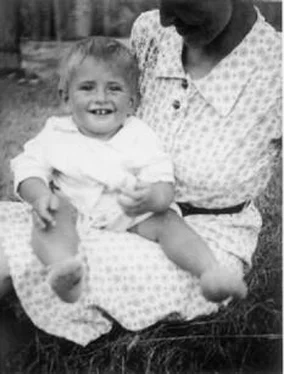


![Антон Текшин - EndGame [СИ]](/books/394477/anton-tekshin-endgame-si-thumb.webp)
